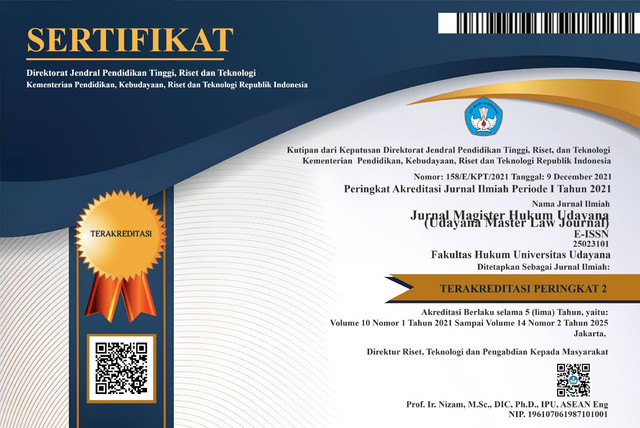Blockchain as a Tool for Land Access Redistribution in Indonesia
DOI:
https://doi.org/10.24843/JMHU.2025.v14.i03.p05Abstract
This study investigates the potential of blockchain technology in addressing Indonesia’s persistent land inequality and agrarian exclusion. Using a socio-legal and comparative approach, the research first examines the historical roots of unequal land access, from colonial legacies to the limitations of the 1960 Agrarian Law and subsequent redistribution programs that failed to deliver substantive change for farmers, Indigenous peoples, and rural communities. It then critiques Indonesia’s ongoing digital transformation through electronic land certificates, highlighting how technical reforms—such as the planned expiration of older forms of proof by 2026—risk reinforcing exclusion when not accompanied by inclusive policies and equitable access. Against this backdrop, blockchain is analyzed not merely as a technical innovation but as a potential framework for rebuilding trust and justice in land governance. Its features—immutability, decentralization, and transparency—offer safeguards against manipulation while enabling the recognition of previously excluded land claims. Lessons from Georgia, Sweden, and India demonstrate that blockchain can strengthen agrarian justice and institutional accountability, yet only when embedded within broader legal reform, institutional capacity, and participatory governance. Ultimately, the findings underscore that blockchain alone will not resolve Indonesia’s deep-rooted land challenges. However, if aligned with inclusive land governance, digital literacy efforts, and sustainable development goals, blockchain can serve as a powerful enabler of constitutional aspirations: ensuring land serves the people, protects the vulnerable, and advances justice for all.
Downloads
Downloads
Published
Issue
Section
License
Copyright (c) 2025 Prita Miranti Suyudi (Penulis)

This work is licensed under a Creative Commons Attribution-NonCommercial 4.0 International License.


